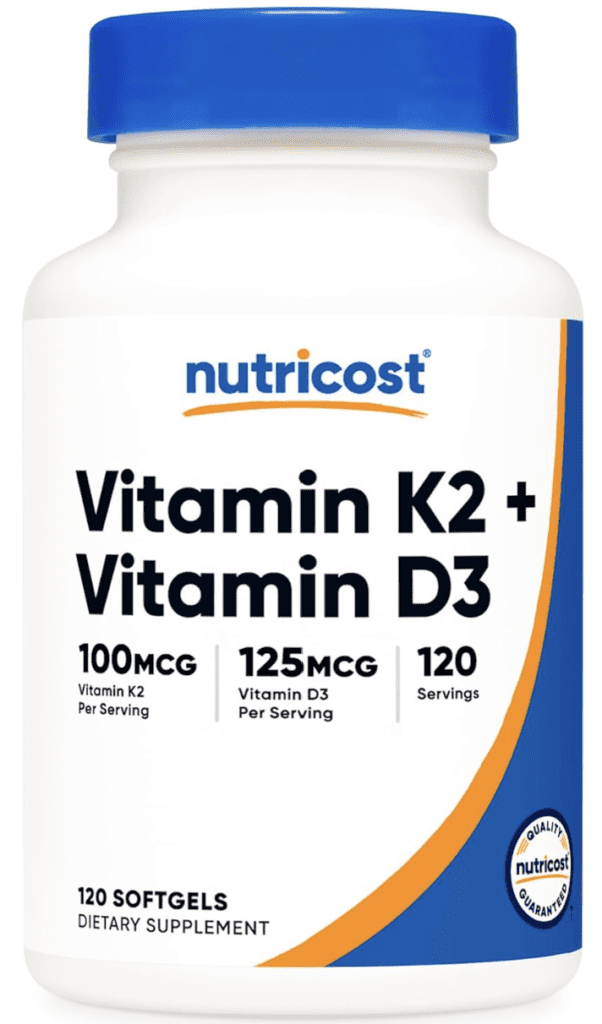Vitamin K2 Directs Calcium to Your Bones and Teeth
Vitamin K2: The Unsung Hero of Calcium Management
Alright, folks, let’s get one thing straight: Calcium is like the rock star of the mineral world. It gets all the attention for building strong bones and teeth. But even rock stars need a good manager to direct them to the right gigs. Enter Vitamin K2, the backstage hero that ensures calcium knows exactly where to go—straight to your bones and teeth, not your arteries.
What’s Vitamin K2 Anyway?
Vitamin K2 might sound like the sequel to some obscure vitamin flick, but it’s far more crucial than its name suggests. It’s part of the Vitamin K family, which includes K1 (found in leafy greens) and K2 (found in animal products and fermented foods). While K1 focuses on blood clotting, K2 is the director of calcium traffic within your body. Think of it as the GPS for your minerals, making sure everything ends up in the correct spot.
How Does Vitamin K2 Work Its Magic?
So how does this silent operator work? Vitamin K2 activates proteins that help shuttle calcium into your bones and teeth while keeping it out of places where it doesn’t belong—like your arteries and soft tissues. These are the two proteins you need to know:
- Osteocalcin: This protein binds calcium to your bone matrix, ensuring your bones stay strong and healthy. Without enough K2, osteocalcin can’t do its job, leaving calcium to wander aimlessly.
- Matrix Gla-Protein (MGP): This one keeps calcium from depositing in your arteries. Think of MGP as the bouncer at the calcium club, making sure only the cool cats (your bones and teeth) get in, while the riff-raff (arterial calcium) stays out.
The Calcium Paradox: A Real Head-Scratcher
Ever heard of the “Calcium Paradox”? It’s when you have plenty of calcium in your diet but still manage to have weak bones and calcified arteries. That’s because without Vitamin K2, calcium doesn’t know where to go. It’s like hiring a rock star manager who sends the band to play at a retirement home instead of a stadium. Not good.
Where Can You Get Vitamin K2?
Getting enough Vitamin K2 isn’t as straightforward as you might hope. Unlike K1, which is plentiful in leafy greens, K2 is found in fewer foods. Here are some top sources:
- Natto: This Japanese fermented soybean dish is the granddaddy of K2-rich foods. Love it or hate it, natto packs a serious K2 punch.
- Animal Products: Meat, eggs, and dairy from grass-fed animals contain decent levels of K2. So, if you’re a fan of steak and eggs, you’re in luck.
- Fermented Foods: Sauerkraut, kefir, and certain cheeses also contain K2. So, your love for cheese isn’t just indulgence—it’s practically a health regime.
Do You Need a K2 Supplement?
Sometimes diet alone isn’t enough to meet our K2 needs, especially if you’re not big on fermented foods or grass-fed products. Here’s where supplements come in handy. K2 supplements often come in two forms: MK-4 and MK-7. MK-7 is the preferred version because it stays in your system longer, giving your body more time to use it effectively.
The Bottom Line: Vitamin K2 Is Essential
Let’s wrap this up with a bold statement: Ignoring Vitamin K2 is like forgetting the key member of your health squad. Without it, all that calcium you’ve been diligently consuming could end up in all the wrong places.
So next time you’re planning your meals or considering supplements, give Vitamin K2 the respect it deserves. Your bones will be stronger, your teeth will be healthier, and your arteries will thank you for not turning them into concrete pipes.
Ready to add some K2-rich foods to your diet or considering a supplement? Remember, it’s not just about getting enough calcium; it’s about making sure that calcium ends up where it belongs. Give Vitamin K2 the credit it’s due and take control of your calcium management today.

